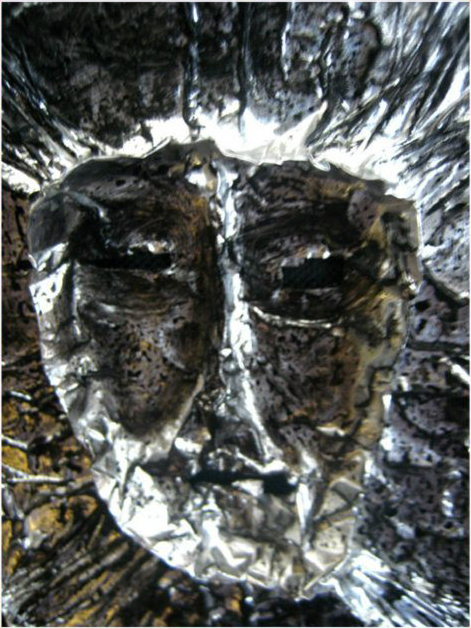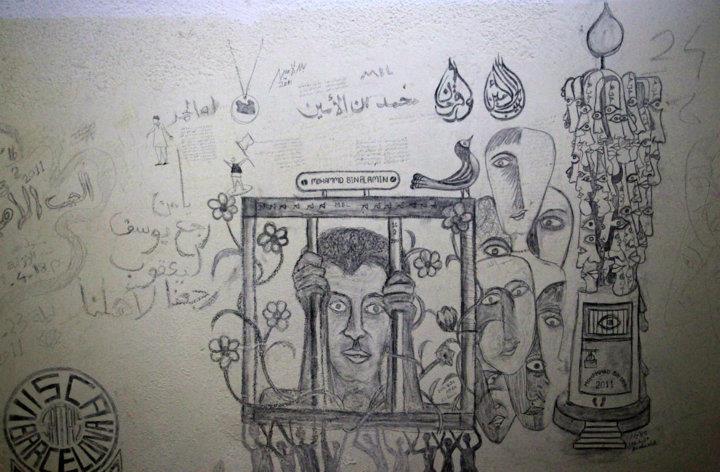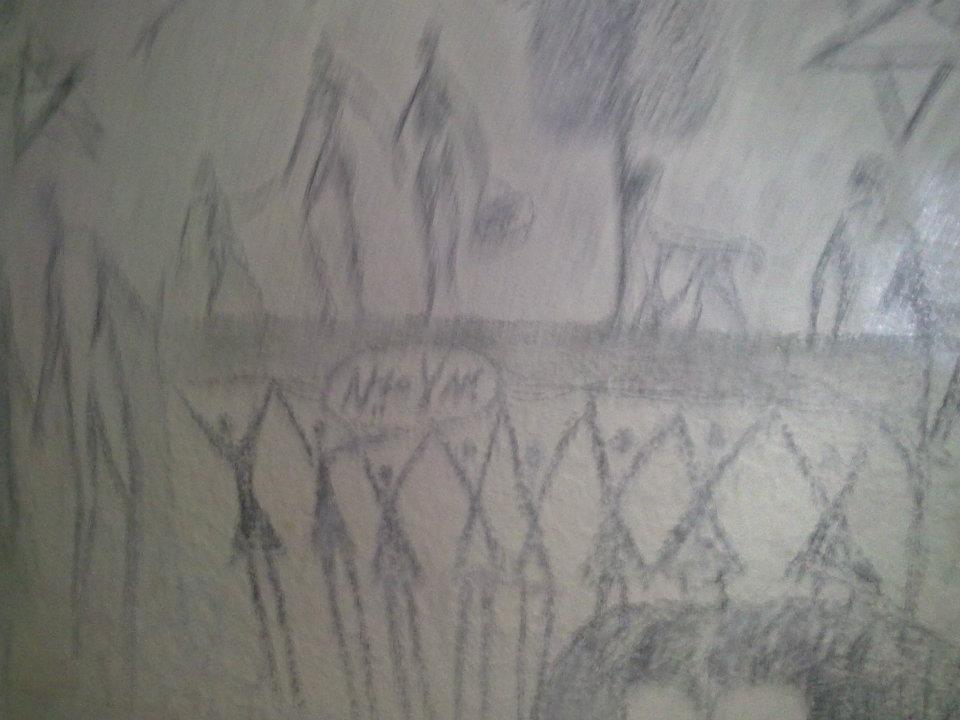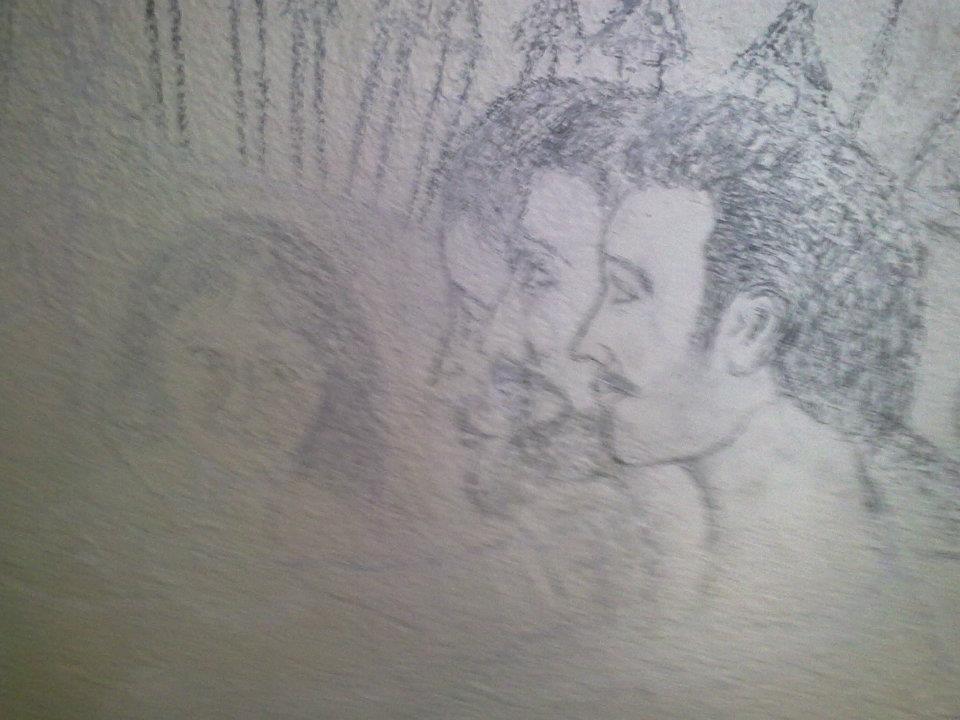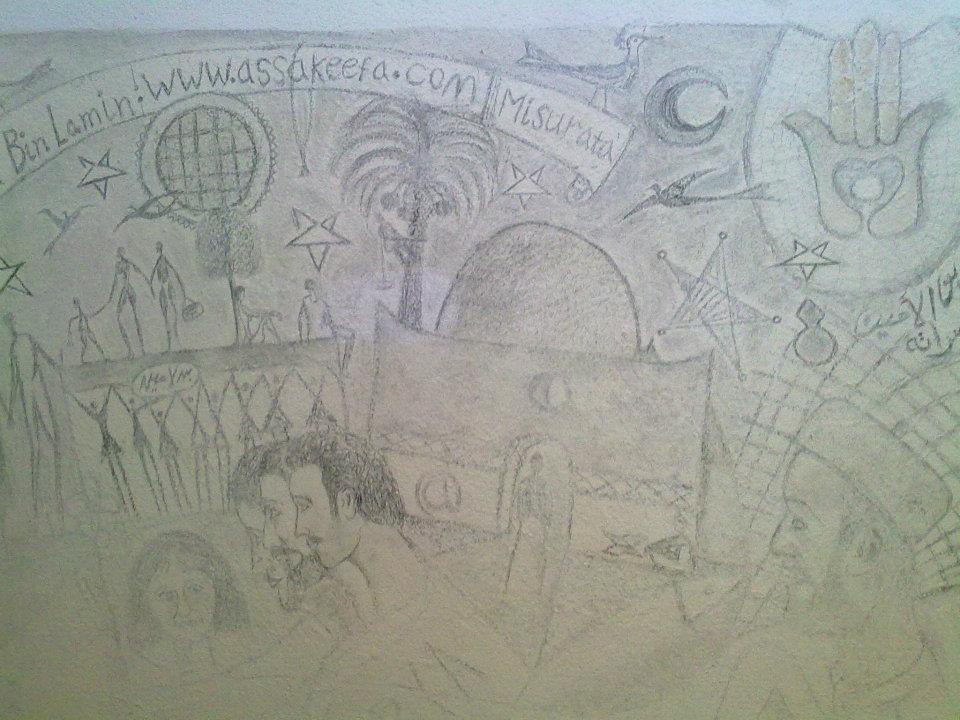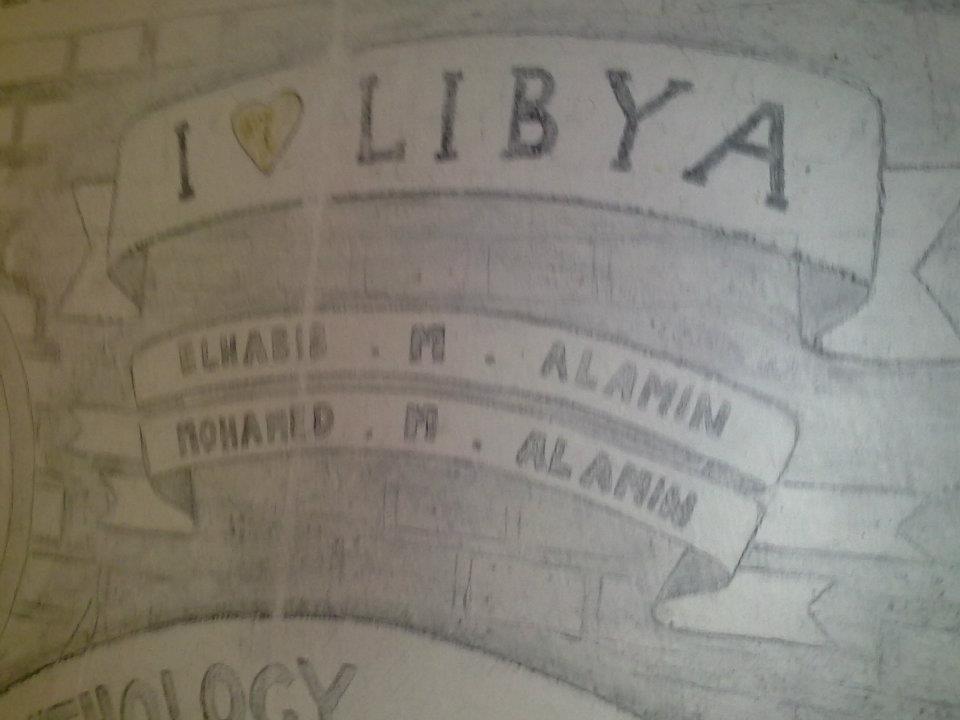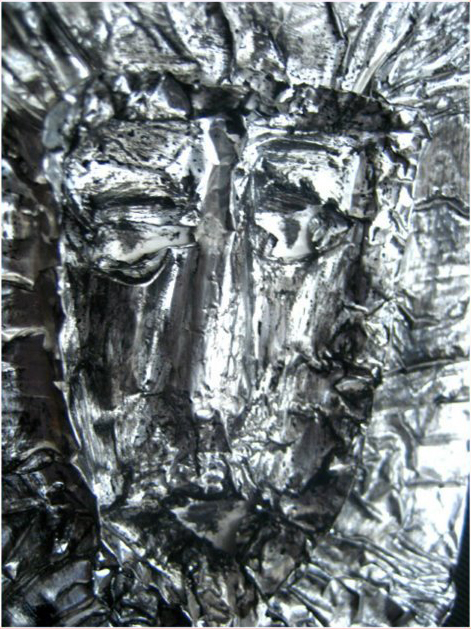ABU SALIM PRISON 2011
By Mohammad Bin Lamin
These pieces are from a body of work that artist Mohammad Bin Lamin created while detained in Libya's Abu Salim prison, located in the capital of Tripoli and notorious for systemic torture and a 1996 massacre in which some 1,270 prisoners were killed. During Bin Lamin's detention, prisoners were brutally beaten and only allowed out of their cells for interrogation. Desperate for a creative outlet, the artist began sculpting the faces of fellow prisoners from the aluminum containers in which their meals were brought. At other times, he used these malleable trays to fashion pencils with which he would draw on the walls of his cell.
Arrested with his brother Habib on February 16, 2011—one day before mass anti-government protests erupted across Libya—Bin Lamin describes his drawings as being "all about freedom and the Libyan Revolution." Arranged around the illustrations are messages such as, "Return us to our families" (appearing in Arabic). Yet the sketches—the product of a rebellious act in itself—are most defiant in their optimism. Commenting on the second image displayed above, Bin Lamin explained: I drew the prison cell surrounded by flowers as a symbol of hope. When the guards looked through the window of our cell door they would see this image. I wanted them to know that I am not sad, but [rather] it was an honor to be here for Libya.
Bin Lamin was severely “punished” for his artwork. In one instance, guards conducted a night-time raid on his cell. They violently woke him at 3:00 a.m., covered his head with a hood, took him to the courtyard, and forced him to kneel in front of them as they loaded their weapons and told him that he was about to die. The officers subsequently left him there, barefoot in the winter temperatures, until morning. Despite the trauma of this mock execution, Bin Lamin was undeterred, even boldly writing his name and that of his brother in English, as depicted in the sixth image above. "Compelled" to continue creating art, he "filled [his] walls with drawings" well before he was released on August 23, 2011. In an interview with Al Jazeera, Bin Lamin recalls lamenting his finite 'canvas' inside Abu Salim prison: I wished I was taken to another cell to find more space.
